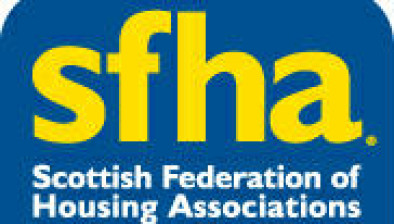Increase in arrears among Universal Credit claimants, SFHA report finds
 The Scottish Federation of Housing Associations (SFHA) has found that as more tenants claim Universal Credit, the greater the share of arrears is among Universal Credit claimants.
The Scottish Federation of Housing Associations (SFHA) has found that as more tenants claim Universal Credit, the greater the share of arrears is among Universal Credit claimants.
Its report on the impact of Universal Credit on arrears is based on 18 months of survey returns from members over the period from January 2019 to June 2020, and covering the time of the first wave of the COVID-19 pandemic.
The SFHA report demonstrates that the average level of arrears of tenants claiming Universal Credit is consistently higher than that of tenants not receiving the benefit, although the research also points out that there was a statistically significant reduction in the proportion of tenants claiming Universal Credit who were in arrears, from 61% in May 2019 to 54% in May 2020.
Respondents to the surveys report that there have been improvements in the service to landlords from the DWP, in particular the building up of arrangements with partnership managers, although the Coronavirus pandemic and the need for key DWP staff to be re-assigned to cope with the upsurge in claims has temporarily interrupted that process. The rollout of a new payment system, where direct payments to landlord coincide with Universal Credit payments to tenant, coupled with more accessible information on the Landlord Portal, promises to do much to simplify rent management and to provide clarity and reassurance to landlord and tenant alike.
The coronavirus pandemic has brought extra challenges to landlords in maintaining engagement with tenants, with remote and online communication being vital whilst at the same time public access to the internet, such as libraries, has been curtailed by lockdown.
Jeremy Hewer, SFHA policy lead, said: “This report is timely, coming out during Challenge Poverty Week. It acknowledges that improvements have been made, in particular the new payment system that aligns direct landlord payments with individual payments, combined with the logging of payment data onto the Landlord Portal which can then be interrogated and downloaded.
“There are still areas of concern. System development to allow the mitigation of the Bedroom Tax at source has been delayed and it is not known yet whether landlords will be able to perform bulk uploads of rent change data for April 2021.
“The DWP is to be commended for the way it has managed the upsurge of new claims in the wake of the Coronavirus pandemic and the measures introduced by the Chancellor, such as the removal of the Minimum Income Floor and the additional £20 per week to the Universal Credit allowance made a big difference. The worry is that these measures are temporary, whereas they need to be permanent. The system is also blighted by the five-week wait for the first payment.”








